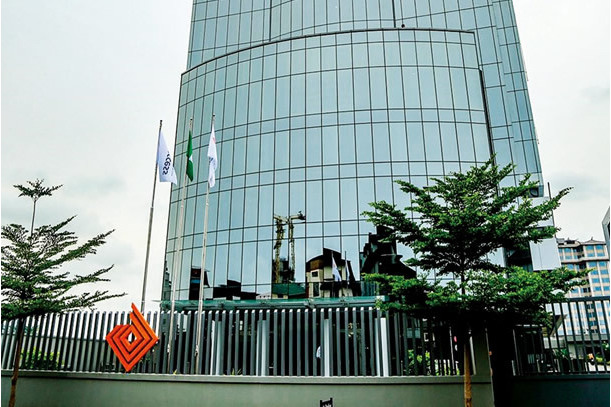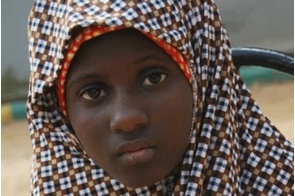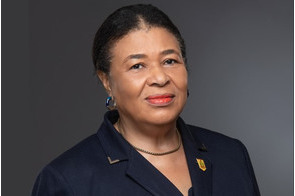Access Bank’s giant strides in the journey to gender equality

Summary
As we celebrate the remarkable achievements of women across the world, we must acknowledge the ongoing struggle for true gender equality, Access Bank advocates.
From championing causes within families and communities to leading industries and pioneering global movements, women continue to play an integral role in advancing society. Their contributions to various fields of endeavour are immense, and certain efforts by women have been unparalleled.
As the world celebrates International Women's Month, we must reflect on our progress in advancing female representation and achieving gender equity. While there have been significant improvements in recent years, the scorecards show that much work still needs to be done to create a level-playing field for women across various spheres of society.
True to this year's International Women’s Day theme, “Embrace Equity", we need to double down on efforts to foster a more inclusive and equitable world where everyone has equal opportunities to reach their full potential, regardless of gender, race, or ethnicity. Therefore, it is pertinent to encourage individuals, organisations, and governments to take concrete steps to promote equal opportunities and empowerment like the continent’s financial services beacon, Access Corporation, through its banking subsidiary, Access Bank, has been able to do for over a decade.
Access Bank has, over the years, championed several brilliant and impactful initiatives and programmes in keeping with the need to foster equity and inclusivity. These interventions have been timely and expedient as gender bias has been a plague that has impacted Nigeria’s ability to reach its full potential while hampering the growth of women in society.
A dominant expression of this is the significant discrepancy in the education provided to boys and girls in Nigeria, with many girls lacking access to sufficient education beyond a certain age. According to the UNESCO Institute for Statistics, as of 2021, the literacy rate among adult females (ages 15 and above) in Nigeria is 64.8%, while the literacy rate among adult males is 80.2%. The net enrollment rate for primary school is 69.8% for girls and 76.6% for boys. The net enrollment rate for secondary school is 34.4% for girls and 43.4% for boys. While more recent statistics show that there has been some improvement in the gender gap in education in Nigeria, there remains a significant disparity, particularly at the secondary school level.
To bridge this gap, Access Bank partnered with HACEY Health Initiative for the Code4Impact (C4i) Programme, a positive step towards achieving the SDGs goal of increasing the ratio of female-to-male mean years of education received. The learning programme offered an ideal solution to this issue by providing young women with the digital and analytical skills necessary for successful careers in Science, Technology, Engineering, and Mathematics (STEM).
The Code4Impact programme was designed to encourage more women to confidently pursue careers in STEM fields and develop digital literacy in web development, game development, mobile app, and microelectronics. The programme's success is evident as it produced over 10,000 STEM professionals who can now add value to various organisations or even function within the gig economy. Furthermore, the programme inspired the Nigeria Women Techsters programme, which trained an additional 2,000 women and girls across Nigeria in digital and programming skills – that’s 2,000 more educated women.
Another Sustainable Development Goal (SDG) target for gender equality is to increase the ratio of female-to-male labour force participation. Studies have shown that Nigeria's Gross Domestic Product (GDP) could increase by 23% or $229 billion by 2025 if women are given equal opportunities to participate in the economy as their male counterparts. Recognising the importance of accelerating women and girls' participation in economic development and fostering the achievement of this goal, Access Bank partnered with Xploit Consult, an organisation focused on advancing the SDGs, to commemorate the 2020 International Women's Day.
The event, themed "Each for Equal" – in line with the International Women’s Day theme for that year – focused on ‘Women and Girls in Nigeria: Increasing Participation in Mainstream Development’. It brought together stakeholders from the gender and education sectors to deliberate and create an action plan to significantly reduce the gender gap in Nigeria by 2030.
The programme featured a workshop and an engaging panel session, where female professionals and stakeholders from diverse backgrounds came together to discuss and creatively brainstorm on finding solutions. The programme also included a rewarding essay competition for female secondary school students on the theme ‘An Equal World: Fostering Economic Growth Through Equitable Participation’.
Such collaborations represent an essential step towards minimising gender bias and promoting the active participation of young women in the nation’s economy. Nigeria can fully leverage its potential and attain even more significant economic growth by providing platforms for inclusive discussions and initiatives that empower women and girls.
Another initiative instituted by Access Bank towards attaining gender equity is the Back on Track Programme. This execution was focused on empowering disadvantaged young girls and women by creating opportunities for them to live healthy and productive lives. In Ebonyi, where the programme was held, 200 women were trained in vocational, agriculture, business, and life skills, as well as in networking and marketing, business management, and mentoring. These skills enabled the women to set up their businesses in the hygiene industry, empowering them for social and economic advancement.
In 2021, Access Bank renewed its partnership with Hacey Health Initiative to promote gender equality and empowerment for women amidst the COVID-19 pandemic. The initiative included a digital campaign focused on women’s mental health and well-being. While it is essential for everyone, regardless of gender, women face unique challenges and stressors that can significantly impact their mental health. One of the reasons why mental health and well-being are essential for women is gender-based violence and discrimination. According to the World Health Organization, 1 in 3 women worldwide experience physical or sexual violence at some point, which can cause significant psychological harm, including depression and anxiety.
Another reason is the lack of access to mental healthcare due to financial, cultural, or religious barriers. A study published in the Journal of Health and Social Behaviour found that women are more likely than men to delay seeking healthcare due to financial constraints, which can lead to delayed treatment for mental health issues.
Additionally, a webinar aimed at enhancing the vocational skills of women and a community health education programme was organised in Ogun, Ebonyi, Oyo, and Kwara states aimed at providing education to pregnant women and traditional birth attendants about safe birthing practices and how to protect themselves from prevalent health issues. In addition, the participants were informed about respiratory hygiene and healthy living habits to strengthen their immune systems and protect them from diseases. During the programme, pregnant women and nursing mothers received relief packages, hygiene packs, and birthing kits.
The community health education programme was successfully conducted in two communities in each state, reaching 1,373 individuals in total. The Women in Leadership webinar drew in an impressive attendance of 117 participants, and a staggering 476 individuals actively participated in the Women in Leadership event that aimed to tackle the issue of gender inequality amidst the challenging backdrop of the pandemic. As part of the programme, 150 women across the four states were trained in vocational skills to support their economic empowerment.
A further target of the sustainability goal Access Bank aims to reach is that of maintaining and improving maternal health before, during and after childbirth. To address some of the maternal health delays and improve maternal health outcomes in Nigeria, HACEY Health has collaborated with Access Bank to establish the "Maternal Health Project." The project aims to reduce the maternal mortality rate and enhance maternal health in Osun, Oyo, and Ogun states. The initiative will be implemented in ten communities across these three states, with a target of educating 3,000 pregnant women on maternal health and financial management, providing them with birthing kits, establishing community-based support groups, and airing TV and radio programmes to promote maternal health. Furthermore, the programme aims to reach a total of one million people with information on maternal health.
In a bid to further suppress the maternal mortality rate in Nigeria, one pregnancy at a time, Access Bank is collaborating with Mobaby Care on a project tagged “The Project Uwar” to acquire birthing kits for 3,000 expectant mothers in 30 communities in Northern Nigeria. The project within the four-week period to commemorate International Women's Month will be centered around Abuja and Nasarawa and Kano states. Project Uwar aims to decrease this prevalence by assisting women, thereby improving the life expectancy of both mothers and children.
As we celebrate the remarkable achievements of women across the world, we must acknowledge the ongoing struggle for true gender equality. We must recognise that gender equality is a human right and an essential component of sustainable social and economic development. It is time for more private stakeholders to take bold steps to invest in women's education, health, and career development. By doing so, we can build more inclusive and equitable societies that promote gender equality and empower women.
International Women's Day might have passed, but Access Bank will keep making relentless efforts and taking giant strides toward equality.
The International Women’s Day celebration calls for individuals and organisations to renew their collective commitment to advancing gender equality and promoting women's rights. Together, we can create a world where every woman has the opportunity to thrive and reach her full potential.
Omobolanle Victor-Laniyan is Head, Group Sustainability, Access Corporation.
Related
-
An unprecedented use of female suicide bombers
Female bombers in particular have the advantage of bucking stereotypes about what a militant looks like, so they can slip ...
-
Access Bank Project 111 providing a lifeline for women battling fibroids
Project 111 takes a comprehensive approach to addressing fibroids, encompassing fundraising efforts, offering free ...
-
Access Bank entrenches female leadership, appoints Awosika chairman
With this appointment, Access Bank has become the first Nigerian bank to appoint female Board Chairs twice in succession.









